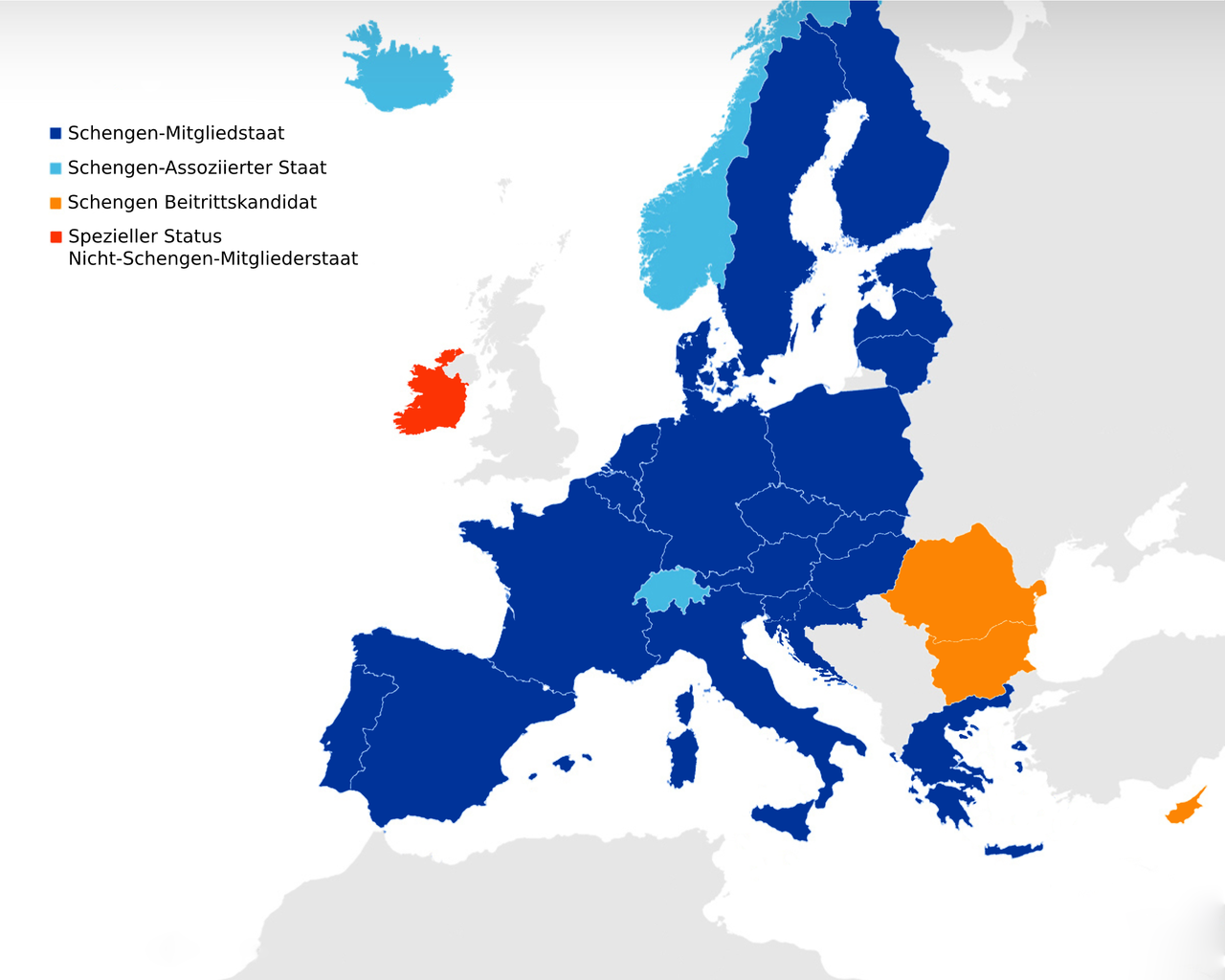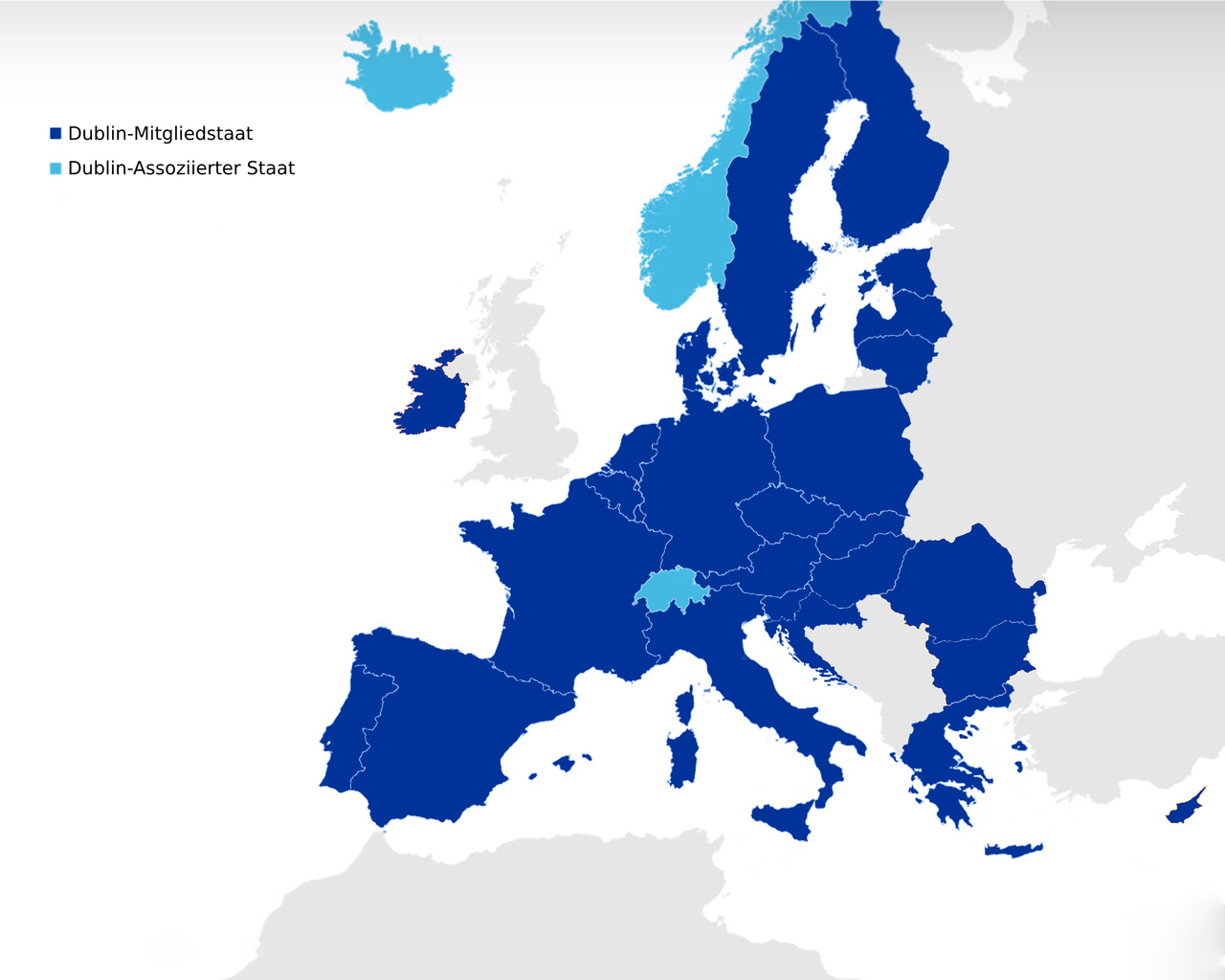General information
Schengen/Dublin
The Schengen/Dublin cooperation promotes close cooperation between EU member states and associated states in the areas of borders, justice, police, visas and Asylum Division. Liechtenstein has been an associate member of the Schengen area since December 2011. With Schengen cooperation, the participating states have basically abolished systematic checks on persons at internal borders and adopted compensatory measures, e.g. the expansion of police cooperation between the Schengen states, to strengthen internal security. Dublin cooperation ensures that each asylum application is only examined by one state.
The cooperation between European states in the areas of borders, justice, police and visas, known as Schengen, was launched in 1985 by five member states of the then European Community. Today, it encompasses almost all EU member states as well as the four associated states Iceland, Norway, Switzerland and, since December 19, 2011, Liechtenstein.
Chronology
- Formal negotiations on association began in Brussels in 2006
- 28.02.2008: Approval of the Association Protocol by the Council of Ministers of Justice and Home Affairs
On the same day: signing of the protocols by Prime Minister Otmar Hasler - 27.06.2008: Adoption of the ratification in Parliament (BuA No. 79/2008)
- 14.01.2009: the protocols were notified and deposited in Brussels
- 12.02.2011: Approval by the European Parliament
- 07.03.2011: Approval by the EU Council
- 01.04.2011: Entry into force of the Dublin Agreement
- 07.04.2011: Entry into force of the Schengen Agreement
- 17.11.2011: Adoption of the Council Conclusion after passing the Schengen evaluation
- 19.12.2011: Entry into force of the protocols and Liechtenstein's accession to Schengen/Dublin
Schengen room

Dublin Room

Further development of the Schengen/Dublin acquis
Because of its Schengen association, Liechtenstein is generally obliged to adopt further developments of the Schengen/Dublin acquis adopted by the EU. However, Liechtenstein - as well as the other associated states - have the opportunity to participate in shaping these developments in the legislative process and to defend their interests directly in expert discussions or at meetings at Ambassador and ministerial level. If new Schengen/Dublin-relevant legal acts and measures have been adopted by the EU, Liechtenstein will be notified immediately. Liechtenstein then has 30 days to confirm the adoption and during this time assesses the appropriateness of the adoption with regard to the applicable constitutional and legal provisions. If the notified legal act creates new rights or obligations, the exchange of notes constitutes a treaty for Liechtenstein, which must be approved by the Government or Parliament. In this case, the exchange of notes is subject to parliamentary approval, which may be subject to an optional referendum. A maximum of 18 months is then available for the adoption and implementation of the further development. A large proportion of the further developments are of a technical nature or are not of a binding nature and can therefore be approved or acknowledged directly by the Collegial Government. Parliamentary approval is required for the remaining further developments.